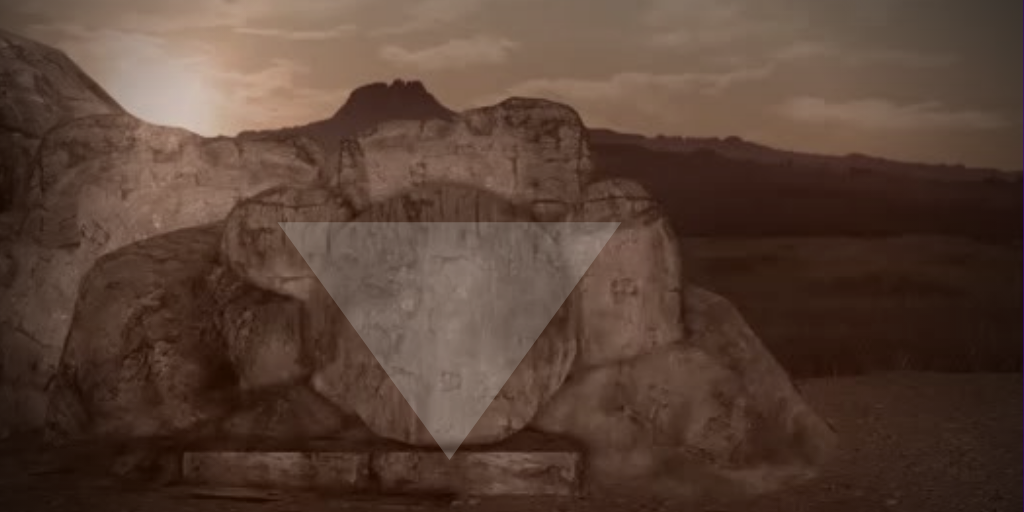“But we had hoped that he was the one to redeem Israel. Yes, and besides all this, it is now the third day since these things took place” (Lk 24:21)
For Christians who observe the liturgical seasons, we are in the midst of Holy Week, in which we journey through Jesus’ last days to the cross and the tomb.
I’ve always felt Holy Saturday is an entirely underutilized theological resource. It is part of our Western wiring to jump forward to the resurrection, get to the point, resolve the story, tie it up with a nice neat little bow, and run the “happily ever after” closing screen.
The COVID-19 pandemic will not play our Western game of short cuts and quick fixes.
An often-overlooked component of the incarnation is the three days that Jesus spends in the grave. God doesn’t stop where we live but goes before us into death. Meeting with us in our brokenness, Jesus does not bail out when things get uncomfortable, he willingly gives his life. He trusts the Father and moves into the unknown.
CANCELED
Easter Sunday is canceled this year.
At least the version of it in which we dress up in our Sunday best, packed into a sanctuary with people, some of whom we only see twice a year (some show up on Christmas Eve too), and hear a choral cantata. There will be no distant family members gathering for a Sunday meal, eating chocolate bunnies, and taking pics of our kids and grandkids finding Easter eggs.
The Coronavirus is forcing us to stay in the tomb. We are living in the tomb time. This requires faith and obedience in the face of uncertainty.
Romans 6:4 and Colossians 2:12 reveal not only the astonishing depths of God’s love, but also indicate our place is with Jesus in the tomb. This descent into the tomb with Christ is part of our own journey to spiritual maturity. It is a move toward our own resurrection life. This inverts the modern world’s values of honor, prestige, and power.
In-Between Time
The tomb forces us into an uncomfortable state of liminality and confusion. We join the disoriented march back to our familiar Emmaus, saying, “But we had hoped that he was the one to redeem Israel. Yes, and besides all this, it is now the third day since these things took place” (Lk 24:21). The tomb, represents separation, disorientation, and living in the in-between. As we carry the cross, innovate and create new things, we hit the wall of disappointment and failure.
In my doctoral research, I created a Contextual Intelligence Framework to encourage the cultivation of contextual intelligence for the local church. Contextual Intelligence is simply the ability to accurately diagnose a context and make the correct decisions regarding what to do.[1] Leonard Sweet and I have co-authored a book on the subject coming out later this year titled Issachar’s Secret: Unlocking Contextual Intelligence for Followers of Jesus.
The contextual intelligence framework is based in the incarnation of Jesus, centered particularly in the “mind of Christ” described in Philippians 2:1-11, informed by Ephesians 4 and the Gospels.

In the contextual intelligence framework, disorientation describes the state of having lost one’s sense of direction and meaning. Organizationally speaking, this is living on the “edge of chaos” between stagnation and innovation.
This move is associated with Jesus’ descent into the realm of the dead “obedient to the point of death” (Phil 2:8). This is the “tomb time” the fullest expression of liminality in human history, the transition from one age (age of the law) fully into another (the age of faith). The late theologian and author Alan Lewis wrote,
The second day appears to be a no-man’s-land, an anonymous, counterfeit moment in the gospel story, which can boast no identity for itself, claim no meaning, and reflect only what light it can borrow from its predecessor and its sequel… Not its number in the series, but its place, bears its significance, as that day between the days which speaks solely neither of the cross nor of the resurrection, but simultaneously remembers the one and awaits the other, and guarantees that neither will be heard, or thought about, or lived, without the other.[2]
While we often pass right over Jesus time in the grave as a non-event, it is of paramount importance. The Scriptures, church tradition, and the creeds affirm a “descent into hell.” We can safely say that Jesus was busy during the darkness of the tomb, while the implications are perhaps beyond our finite comprehension.
Essential Competencies
What is perhaps more informative for this discussion, is what the disciples are up to during this time. A cursory review of the Scriptures may respond with “not much” or at least “nothing to be proud of.” They had a funeral of sorts (Jn 19: 38-41). They rested (Lk 23:56). They waited (Jn 20:2). They hid out (Jn 20:19). Some doubted (Jn 20:25). Some lamented (Jn 20:11). They talked, they processed, they prayed—they formed relationships while they waited, and they wrestled with the implications of what had happened (Lk 24:36). In actuality, this is a huge amount of very important activity. In fact, these are essential competencies of contextually intelligent persons.
Jeanne Liedtka, American strategist and professor of business administration at the Darden School of the University of Virginia is particularly known for her work on strategic thinking, design thinking, and organic growth. Her article “Why Design Thinking Works” in the Harvard Business Review is helpful here.
In regard to the challenges of innovation Lietdka writes,
Defining problems in obvious, conventional ways, not surprisingly, often leads to obvious, conventional solutions. Asking a more interesting question can help teams discover more-original ideas. The risk is that some teams may get indefinitely hung up exploring a problem, while action-oriented managers may be too impatient to take the time to figure out what question they should be asking.[3]
She highlights two essential points regarding contextual intelligence: asking the right questions and timing. In the “tomb time” for instance, the disciples were asking lots of questions. Was Jesus really the one? What does this mean? Should we go home and go fishing? Can a person cursed and executed on the cross really be the messiah? Have we been duped? Are we going to be executed now too? Also, timing was essential to their activity. In John’s narrative we often emphasize the cowardice of the disciples, hiding out with the “doors locked for fear of the Jews” (Jn 20:19). Yet in another sense, they were doing the only thing they could do. Had they rushed out headlong into the streets of Jerusalem, considering the powder keg it was already, they likely would have met a quick fate.
A Time For…
In the in-betweeness of liminality, one experiences disorientation. It is the ambiguous reality of no longer being what you were, but also not yet what you are becoming. Liminality can be an opportunity to embrace this disorientation. To live in the mystery of transition. We can see clearly the past, the events that brought us to this place. From this perspective, we can see the good and bad of that previous scenario. However, our orientation is towards the future. As we journey through the space between, we are oriented towards what’s coming, and we can only imagine the implications.
I believe this is what the Holy Spirit is calling the church to as we embrace the new reality of a pandemic world. The tomb time is a place to wait, reflect, connect in new ways, and learn to ask different questions.
I believe this is what the Holy Spirit is calling the church too as we embrace the new reality of a pandemic world. The tomb time is a place to wait, reflect, connect in new ways, and learn to ask different questions.
Tweet this.
Tomb-time involves consciously pausing to diagnosis our context through the three lenses of hindsight, insight and foresight. Furthermore, we are in a place of powerlessness. We are waiting for God to do what only God can do. Michael Polanyi speaks of how unfinished tasks continue to preoccupy us unconsciously, and how after a period of quiescence a solution can seemingly come to us. He writes,
The fact that our intellectual strivings make effective progress during a period of incubation without any effort on our part is in line with the latent character of all knowledge … For each step—whether spontaneous or contrived—that brings us nearer to the solution, increases our premonition of the solutions proximity and brings us a more concentrated effort to bear on a reduced logical gap.[4]
When faced with a challenge, a period of incubation, in which we rest from the effort of discovering a solution, helps us move through the gap. This dormancy, and the lack of purposeful intellectual energy, is a necessary stage in the process of discovery. It highlights the value of “tomb time.”
While I’m excited to see and participate in such a moment of flourishing creativity and innovation for the church, I also see a downside. Multiple leaders across the country have described a level of exhaustion. Even in our quarantine, we are tired from the constant fire hose of resources pouring out from all the overnight experts telling us how to navigate a frontier where no one has ever been. The constant, unending learning and adaptation is taxing us faster than the old set of responsibilities.
This will be the weirdest first Sunday of Easter any of us have ever experienced. We will proclaim a resurrection story amid a world where thousands are still dying. What will the church’s celebration of Easter mean to those who’s loved ones’ bodies still lie in makeshift morgues awaiting proper burial?
This will be the weirdest first Sunday of Easter any of us have ever experienced. We will proclaim a resurrection story amid a world where thousands are still dying.
Tweet this.
We need to tell that story, with renewed passion and power. But maybe for the first time we will actually experience the disorientation those first disciples lived through, knowing that Jesus was somehow alive in a world that was still dying.
Maybe God doesn’t want us to jump into short cuts and quick-fix solutions.
Perhaps God is calling us to lay down with him in the tomb for a while. To rest. To reflect. To ask new questions. To acknowledge our powerlessness and our ultimate reliance on his intervention. What if we were to take on a posture of vulnerability and withness, along the suffering? To join the weeping and agony of a watching world?
Maybe in the tomb time God will hit the reset button, then resurrect a new church, for a new world.
[1] Beck, Michael Adam, “Contextual Intelligence: One Intelligence to Serve Them All” (2019). Doctor of Ministry. 359. https://digitalcommons.georgefox.edu/dmin/359
[2] Alan E. Lewis, Between Cross and Resurrection: A Theology of Holy Saturday (Grand Rapids, MI: W.B. Eerdmans, 2003), 2-4.
[3] Liedtka, Jeanne. “Why Design Thinking Works” Harvard Business Review. https://hbr.org/2018/09/why-design-thinking-works
[4] Polanyi, Michael. Personal Knowledge: Towards a Post-critical Philosophy (Chicago: University of Chicago Press, 1962), 129.


